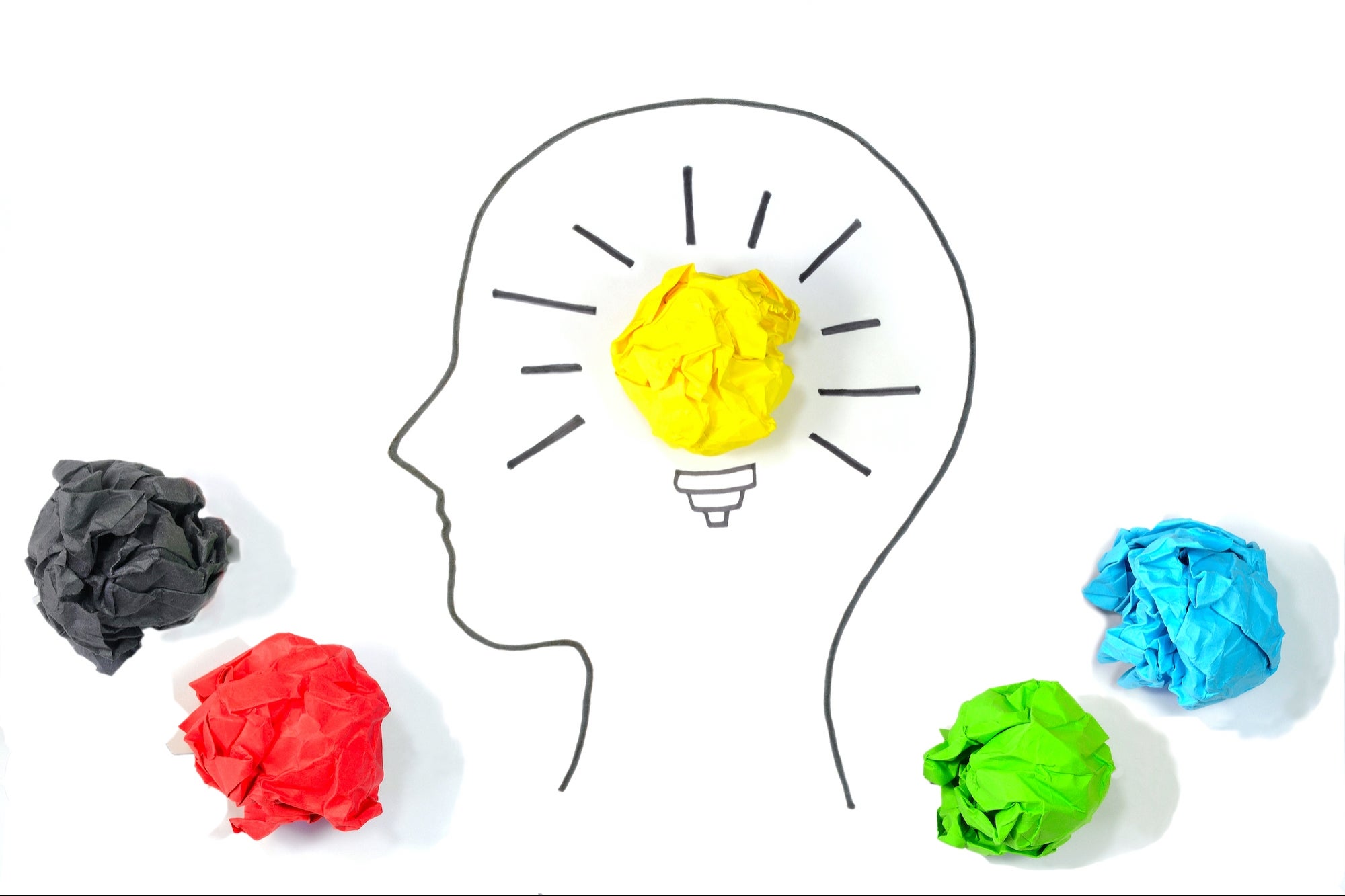Here's how to unleash the power of critical thinking
The opinions expressed by Entrepreneurs contributors are their own.
Great entrepreneurs are able to challenge widely held beliefs, make connections between seemingly disparate ideas, and essentially see what no one else can see.
It's called critical thinking, and you don't have to be born with it; it is a learned skill. Many experts are available for one-on-one mentoring sessions that can help you see things differently, whether it's coming up with new ideas or solving old problems. Allie Webb, founder of Drybar, and Jason Feifer, editor of Entrepreneur magazine, are two experts in this field who are now available for one-on-one video calls through the Intro expert platform.
Related: Search our database of business experts available for one-on-one video calls to help you succeed
Why critical thinking is importantCritical thinking enables individuals to analyze information objectively, identify and evaluate arguments, and make informed decisions.
Problem Solving: Critical thinking helps you approach problems in a structured and systematic way. This is when you put on your consulting hat with a systematic process: Define the problem -> gather information -> analyze information -> identify possible solutions -> implement -> evaluate -> make adjustments . By evaluating different options and weighing their strengths and weaknesses, you can arrive at an effective solution.
Decision-making: Effective decision-making requires the ability to evaluate information, weigh the pros and cons, and come to an informed conclusion. Critical thinking skills are essential for making informed choices in personal and professional contexts.
Effective communication: It starts with active listening. By analyzing information and arguments, you can articulate your thoughts and ideas more clearly and convincingly.
Tips for improving your critical thinking skillsPractice asking questions: The 5 Whys is a problem-solving method used to uncover the root cause of a problem by asking "why" questions. The idea is to keep asking "why" until the root cause is found. Here's how to apply the 5 whys:
Clearly define the problem: identify what is happening and what needs to be fixed. Ask "Why" questions: Ask "Why" the problem is happening and record the answer. Repeat this step five times. Analyze the answers: Evaluate the answers and see if they provide insight into the root cause of the problem. Identify the root cause: Use the answers to identify the root cause of the problem. Develop a solution: Use the understanding of the root cause to develop a solution to the problem.Seek out new information and diverse perspectives: Stay informed and exposed to different opinions, perspectives, and sources of information. It will help you broaden your understanding of the world and sharpen your critical thinking.
Analyze Arguments: When evaluating arguments, look for logical errors, flaws in reasoning, and biases. This will help you identify the strengths and weaknesses of an argument and come to an informed conclusion.
Reflect on your own thoughts: Take time to reflect on your own thoughts and beliefs. Consider how your experiences and background may impact your perspective.
The ability to think critically is rare. And vital. By developing this skill, you can increase your cap. You can become a better problem solver, a more effective communicator, and a more valuable employee. The world is constantly changing and evolving, and by embracing critical thinking, we can adapt and thrive in the face of new challenges.
Let's make critical thinking the cornerstone of the modern workplace.

The opinions expressed by Entrepreneurs contributors are their own.
Great entrepreneurs are able to challenge widely held beliefs, make connections between seemingly disparate ideas, and essentially see what no one else can see.
It's called critical thinking, and you don't have to be born with it; it is a learned skill. Many experts are available for one-on-one mentoring sessions that can help you see things differently, whether it's coming up with new ideas or solving old problems. Allie Webb, founder of Drybar, and Jason Feifer, editor of Entrepreneur magazine, are two experts in this field who are now available for one-on-one video calls through the Intro expert platform.
Related: Search our database of business experts available for one-on-one video calls to help you succeed
Why critical thinking is importantCritical thinking enables individuals to analyze information objectively, identify and evaluate arguments, and make informed decisions.
Problem Solving: Critical thinking helps you approach problems in a structured and systematic way. This is when you put on your consulting hat with a systematic process: Define the problem -> gather information -> analyze information -> identify possible solutions -> implement -> evaluate -> make adjustments . By evaluating different options and weighing their strengths and weaknesses, you can arrive at an effective solution.
Decision-making: Effective decision-making requires the ability to evaluate information, weigh the pros and cons, and come to an informed conclusion. Critical thinking skills are essential for making informed choices in personal and professional contexts.
Effective communication: It starts with active listening. By analyzing information and arguments, you can articulate your thoughts and ideas more clearly and convincingly.
Tips for improving your critical thinking skillsPractice asking questions: The 5 Whys is a problem-solving method used to uncover the root cause of a problem by asking "why" questions. The idea is to keep asking "why" until the root cause is found. Here's how to apply the 5 whys:
Clearly define the problem: identify what is happening and what needs to be fixed. Ask "Why" questions: Ask "Why" the problem is happening and record the answer. Repeat this step five times. Analyze the answers: Evaluate the answers and see if they provide insight into the root cause of the problem. Identify the root cause: Use the answers to identify the root cause of the problem. Develop a solution: Use the understanding of the root cause to develop a solution to the problem.Seek out new information and diverse perspectives: Stay informed and exposed to different opinions, perspectives, and sources of information. It will help you broaden your understanding of the world and sharpen your critical thinking.
Analyze Arguments: When evaluating arguments, look for logical errors, flaws in reasoning, and biases. This will help you identify the strengths and weaknesses of an argument and come to an informed conclusion.
Reflect on your own thoughts: Take time to reflect on your own thoughts and beliefs. Consider how your experiences and background may impact your perspective.
The ability to think critically is rare. And vital. By developing this skill, you can increase your cap. You can become a better problem solver, a more effective communicator, and a more valuable employee. The world is constantly changing and evolving, and by embracing critical thinking, we can adapt and thrive in the face of new challenges.
Let's make critical thinking the cornerstone of the modern workplace.
What's Your Reaction?






















